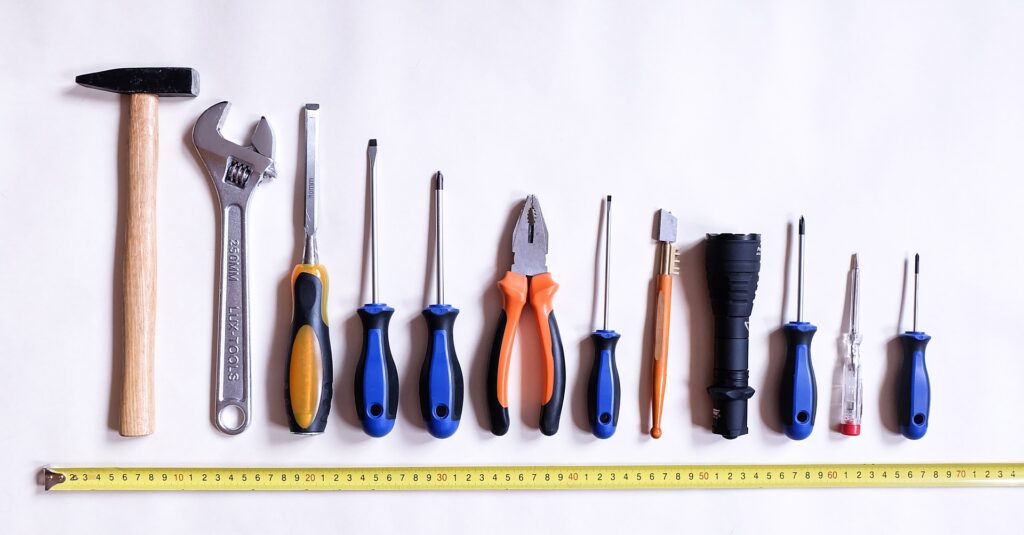Maintenance professionals play a crucial role in keeping various industries running smoothly. Whether you’re a custodian, handyman, or industrial maintenance technician, having the right tools is vital. In this article, we’ll delve into the 10 types of maintenance tools that every professional should be familiar with and their practical uses.
Who Uses Maintenance Tools?
Before we dive into the toolkit, let’s understand the diverse professionals who rely on these instruments:
Custodian
Custodians are responsible for the upkeep of buildings, performing tasks such as cleaning, trash removal, window cleaning, floor maintenance, and HVAC equipment repairs.
Handyman
Independent contractors offer various maintenance and repair services, specializing in residential construction, appliance repair, cleaning, yard work, painting, plumbing, and electrical work.
Industrial Maintenance Technician
Professionals specializing in inspecting, maintaining, and repairing heavy equipment across various industries, including manufacturing, energy, and construction.
Facility Manager
Managers oversee commercial building maintenance and are responsible for cleaning, repairs, managing staff, organizing special events, and installing equipment and furniture.
Landscaper
Professionals create and maintain outdoor spaces for residential or commercial clients, including mowing, sprinkler installation, aeration, planting, fertilizing, and mulching.
Painter
Specialists apply paint, stain, and sealers to interior and exterior surfaces, including surface preparation and cleanup.
Repair Specialist
Professionals fixing equipment across diverse fields, specializing in appliances, heavy equipment, and electronics.
Fleet Maintenance Specialist
Experts providing maintenance services for corporate vehicle fleets, covering cars, buses, construction equipment, or aircraft.
10 Types of Maintenance Tools
Let’s unpack the toolbox and explore the essential maintenance tools professionals rely on:
1. Safety Gear
Gloves: Shielding hands from chemicals, sealants, and adhesives.
Safety Goggles: Protecting eyes during chemical work or sanding.
Ear Protection: Safeguarding against the noise of power tools.
Dust Masks and Respirators: Filtering out chemical fumes and dust.
2. Storage Equipment
Toolboxes: Portable cases for storing and transporting tools.
Shelving Units: Organizing tools in a permanent shop setting.
Lockers: Secure storage for large equipment and chemicals.
Tool Belts: Convenient transport for tools during work.
3. Power Tools
Power Drills: Versatile for drilling holes and driving screws.
Orbital Sanders: Smoothing surfaces with rapid rotary motion.
Circular Saws: Cutting materials like wood, plastic, and plywood.
Impact Wrenches: Tightening and removing nuts and bolts effortlessly.
4. Hand Tools
Screwdrivers: Essential for tightening and removing screws.
Hammers: Driving and removing nails with precision.
Crescent Wrenches: Perfect for nuts and bolts with hexagonal heads.
Hand Saws: Cutting through materials like wood, metal, and plastic.
5. Electrical Tools
Wire and Cable Strippers: Removing the outer coating from electrical wires.
Multimeters: Testing electrical circuits for voltage, resistance, and current.
Crimpers: Joining wires, connectors, and other electrical components.
6. Cleaning Supplies
Vacuum Cleaners: Ideal for cleaning carpets and surfaces.
Cleaning Chemicals: A variety, including bleach, ammonia, and degreasers.
Brooms and Mops: Essential for keeping floors spotless.
Window Washing Tools: Scrubbers, squeegees, and extension handles for crystal-clear windows.
7. Landscaping Equipment
Lawnmowers: Cutting grass efficiently with push or riding options.
Trimmers: Precision tools for trimming grass and plants.
Aerators: Enhancing irrigation and fertilization by removing soil plugs.
Clippers: Perfect for trimming hedges, trees, and other plants.
Conclusion
Having the right tools is the key to success. From safety gear to landscaping equipment, each tool serves a unique purpose in ensuring a job well done. Whether you’re a custodian maintaining a building or a fleet maintenance specialist keeping vehicles in top shape, these tools are your trusted companions in the maintenance journey.
FAQs About Maintenance Tools
- Do I need all these tools for basic maintenance work?
- It depends on your specific tasks. Basic repairs may only require a few essential tools, while more extensive projects may demand a broader toolkit.
- Can I use power tools without proper training?
- Safety first! Proper training is crucial to avoid accidents. Always follow guidelines and use safety gear when operating power tools.
- What’s the difference between a handyman and a repair specialist?
- While both handle repairs, handymen often cover a broader range of tasks, including construction and yard work, while repair specialists focus on fixing specific equipment.
- How often should I clean and maintain my tools?
- Regular maintenance is key to the longevity of your tools. Clean them after each use and perform routine checks to ensure they’re in optimal condition.
- Are there any eco-friendly alternatives to cleaning chemicals?
- Yes, many environmentally friendly cleaning options are available, such as vinegar, baking soda, and eco-friendly commercial cleaners. Choose options that align with your sustainability goals.
Engage with these maintenance tools, master their uses, and elevate your skills in maintenance professions!
